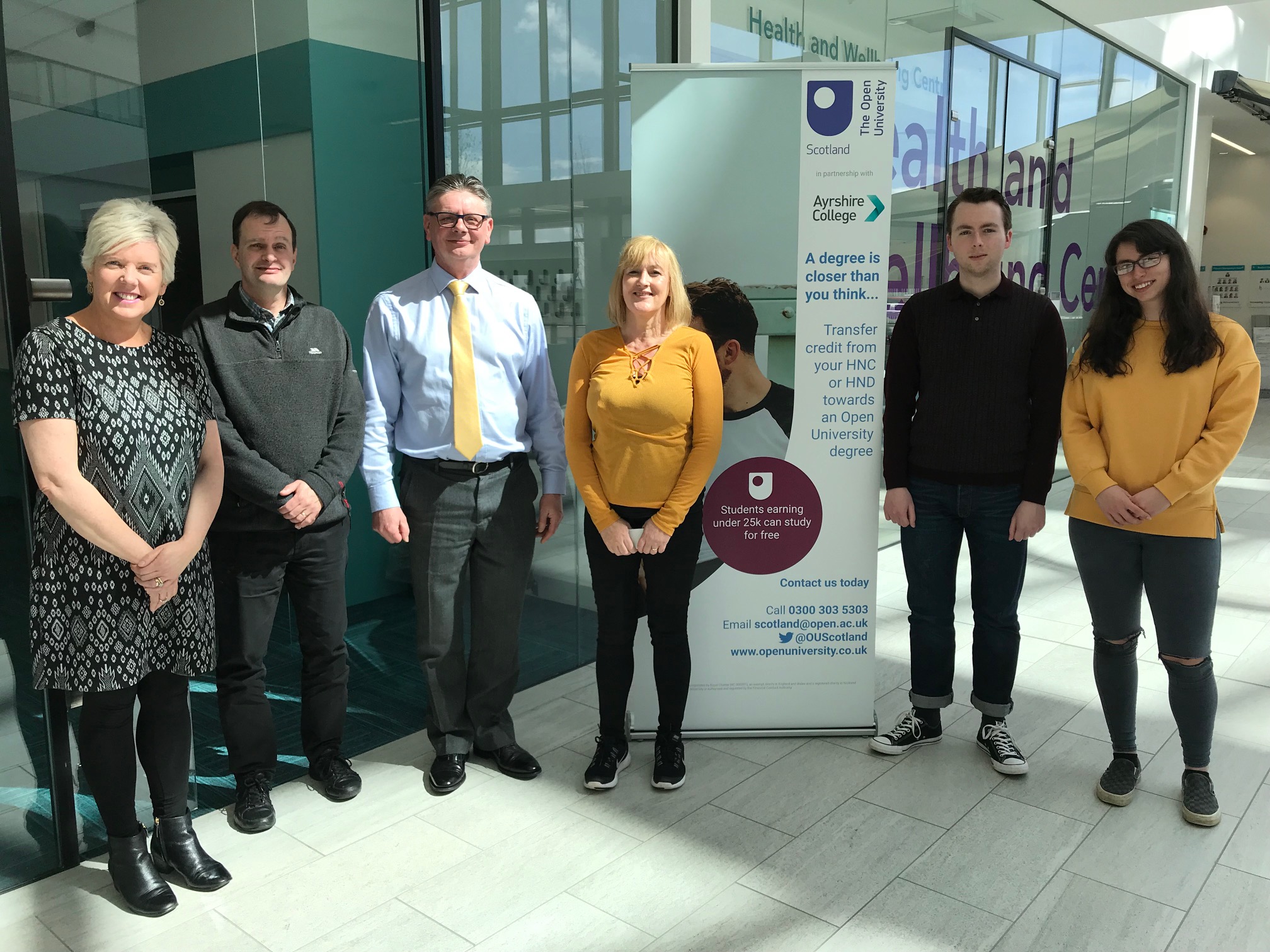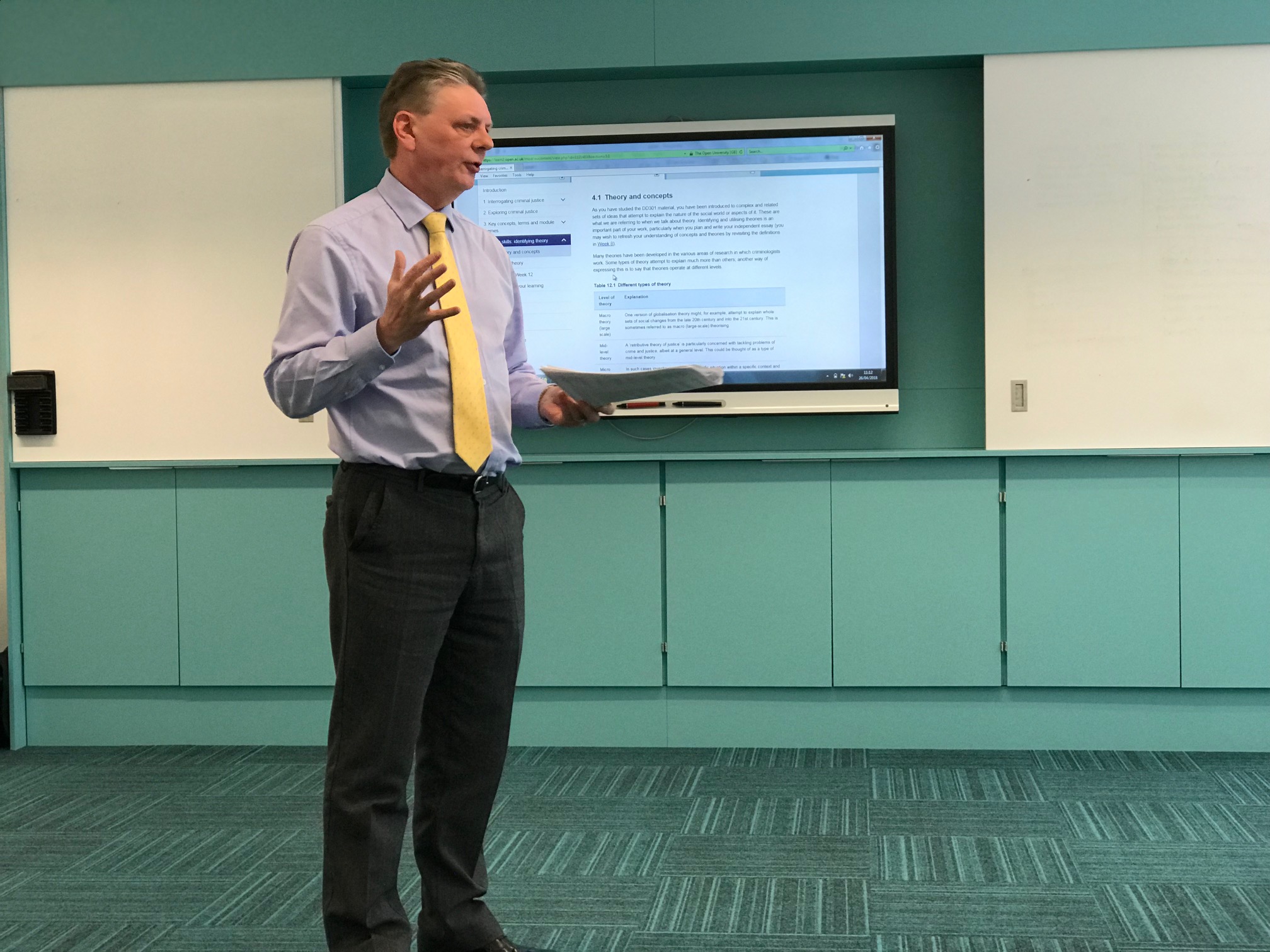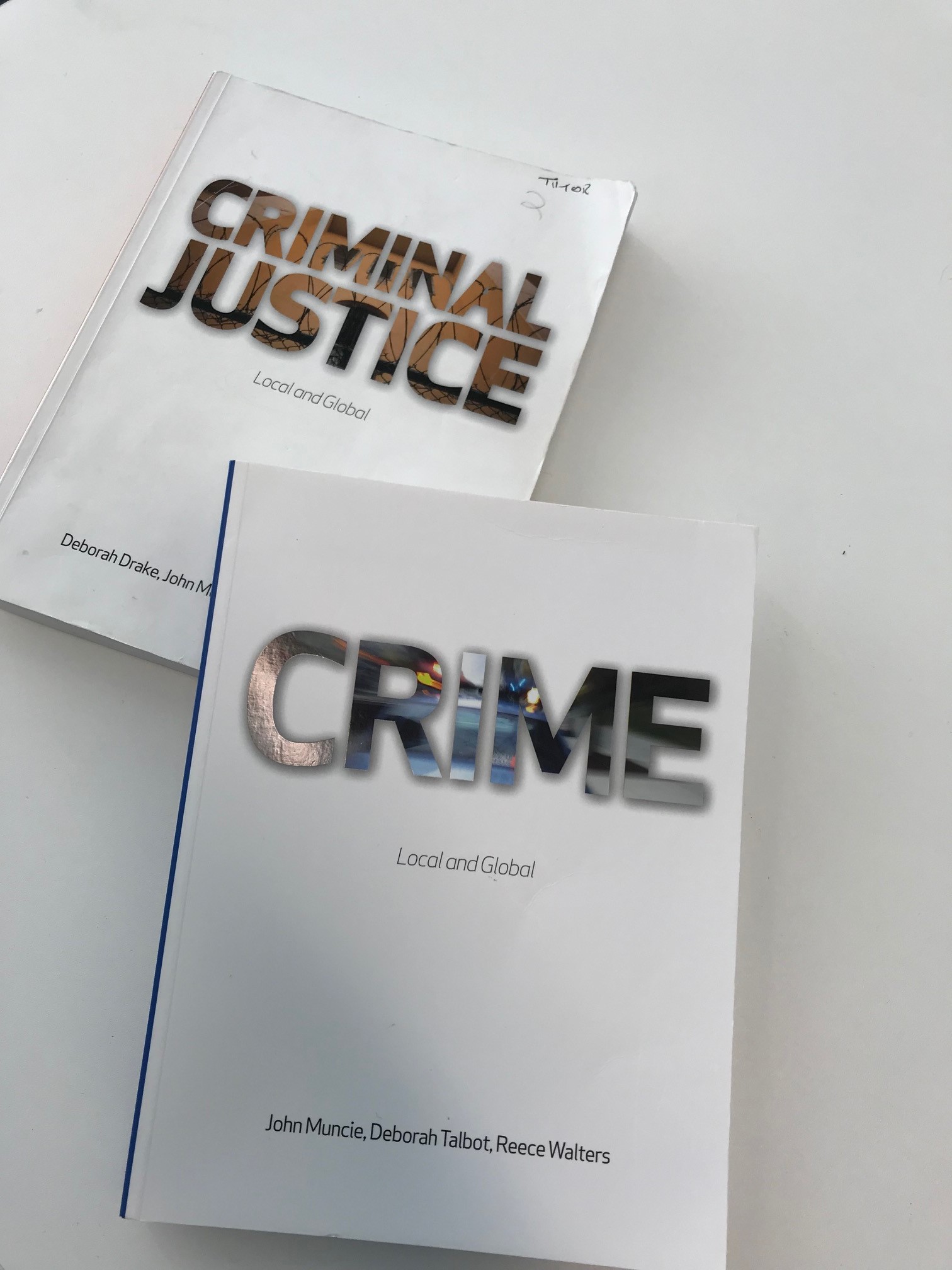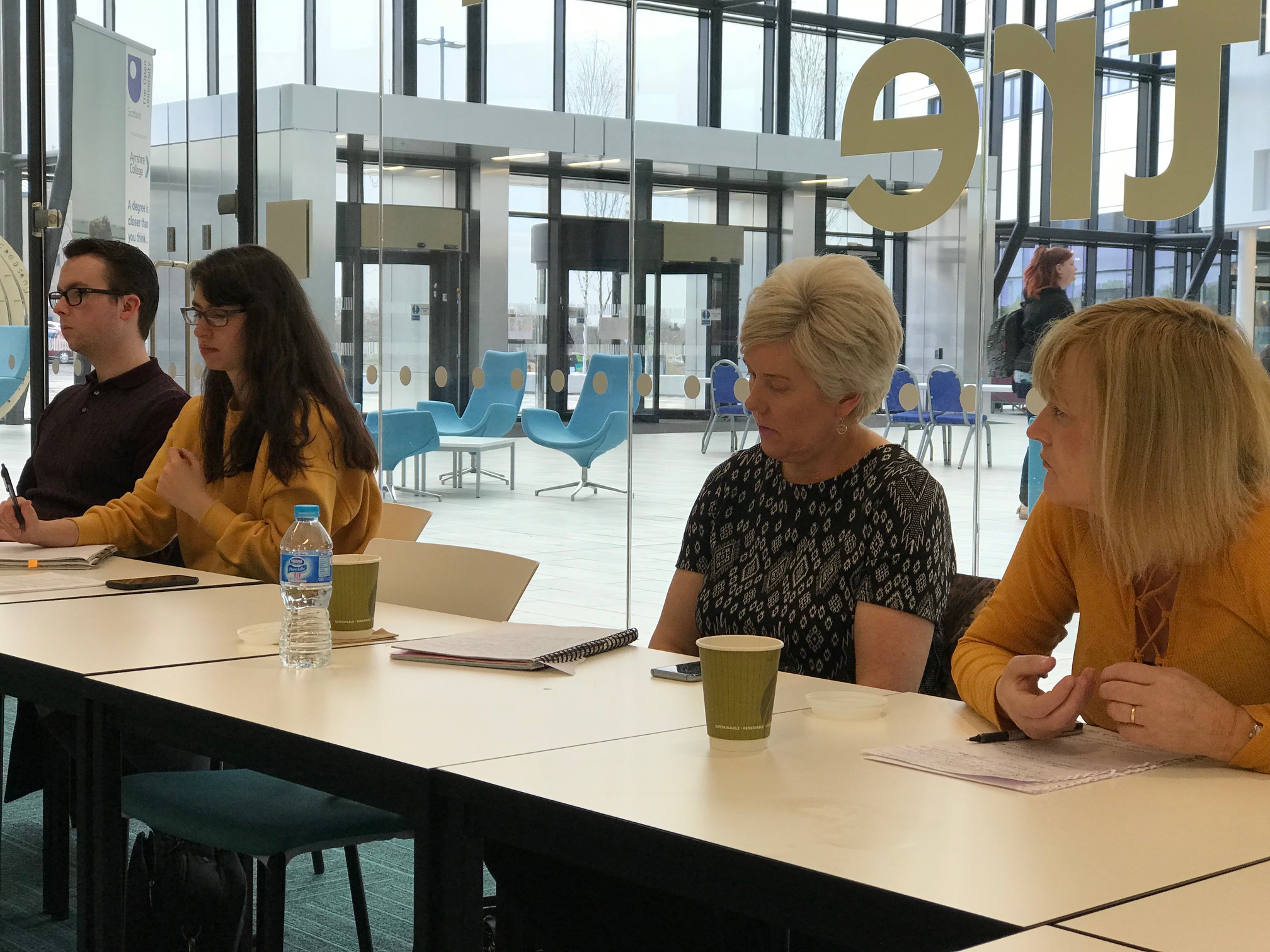It’s never too late to learn Social Science (Pt. 2)
This blog is written by Shelagh McLachlan, Marketing and PR Manager and is in two parts. This is part two, about the social science class.
The marketing team has been set an exciting task to spend a day in the life of a student. This will provide a real insight into some of our courses to enhance our knowledge and understanding, helping us give even better course information to applicants. But more importantly, it helps us to understand our students needs, and identify any worries they have when thinking about coming to college, going through the application process, and their learning experience. What can we learn to improve our marketing?
This blog is written by Shelagh McLachlan, Marketing and PR Manager and is in two parts. This is part two, about the social science class. Part one, is the inspiring story of social science student Scott Montgomery. Catch up here.
The student I am shadowing for the day is Scott Montgomery who has been studying social science for a number of years. He is currently doing a degree with the Open University (OU) in partnership with Ayrshire College. His class is in the Kilmarnock Campus, with the same lecturers he has known throughout his learning experience.
I was really looking forward to joining his class, because I achieved my degree through the OU in 2000. With the digital revolution happening since I graduated, I wondered how much it has changed.

As you may have read in the first part of this blog, Scott works as a bus driver, and comes into college for his class in between his shifts. As I drove to work, I spotted him on the school bus run! Many students studying an OU degree balance work, family and studying, and it reminded me how much commitment and dedication you need to be successful.
My first impression was how welcoming and relaxed the class were. A small group sitting with their coffees and looking really engaged with the lesson.
The class I joined is, “Crime and Criminal Justice”, and the course themes are:
Harm and violence – did you know that there are more industrial accidents than serious crimes like murder?
Local and global – the impact of crime locally and globally
Power – those who are in a position to dictate
Today, the lecturer, Andy Sinclair is giving advice on how to write the final essay in the course. It’s to be 4000 words and each person has to investigate a topic that has sparked their interest from one of the above themes.

Scott has chosen to research corporate crime. He is going to look at health and safety issues and explore the following concepts; do corporations kill? Do managers murder? His focus will be around power. What is a crime and who says so?
How interesting is that! I can’t wait to read his essay – I hope I get the opportunity to do so. I am almost sorry I missed the previous classes where you learn all the arguments around these issues and a chance to research and debate.
Others in the class are researching CCTV. I learned that in the UK, we are the most surveyed country in Europe. The Government says it reduces crime. However, evidence suggests that it does not reduce or prevent crime – so what’s the real purpose of CCTV? Another topic is computer crime, obviously this is headline news right now with the Cambridge Analytica story.
The purpose of the lesson is to provide guidance on how to structure the essay. Although the OU provides brilliant supporting documents, it is great to have a face to face discussion with your lecturer to clarify points and get some reassurance. Some students couldn’t manage along to the class, and Andy will offer them either a telephone tutorial or online guidance.
So what were Andy’s top essay writing tips?
Keep it focussed – as you are writing, always reread the question and refer back to it, so you remind the reader of the purpose of the essay.
Signposting is very important to lead the reader through your essay and make it flow. It helps tie it all together by making links from one paragraph to another.
The literature review is an opportunity to have a voice. (not an opinion) Where you present a balanced argument.

Social scientists should be cynical – don’t accept things at face value. Look for what is not being said, what’s behind the headlines and why is it missing?
Use the evidence to present the arguments for you.
Be disciplined – include essential, interesting evidence. If it’s nice to know, but it doesn’t strengthen the argument – don’t include it.
Your aim is to engage the reader, encourage them to believe you by leaving no loose ends.
Andy gave brilliant guidance with very clear helpful information. He broke down what seemed at the start as a huge task, into smaller chunks, and made it feel more manageable. His pace of delivery meant that it was not rushed and you had time to think about what he had said. It was easy for the students to ask questions.
He gave the following good advice. Don’t leave it until the last day to submit your work – there may be technical issues, so hand it in before the deadline and don’t put yourself under pressure. Finally remember that we run a program called “Turnitin” which checks references and plagiarism. Which is copying other peoples research and failing to acknowledge this. Instead – reference properly or reword and reinterpret.
Social scientists want to challenge and make changes to the world. By learning to write this essay you will not only be sticking to a format that provides a safety net, you will be learning to become a critical thinker.

Today I have learned that a social scientist is all about learning to be objective. Taking a middle position and presenting a balanced argument. Actively seeking all sides of the argument and finding out the credibility of the argument by testing out the soundness of the claims made.
This took up most of the morning. Next week the class will be discussing exam techniques. We had a good chat about “what’s the point of exams?” and is this method of assessment the most effective way of determining knowledge and understanding?
Andy reminded them to focus on the end goal. Completing the degree, and picture yourself graduating in the Concert Hall in Glasgow in October.
Scott returned to his work to begin his next shift. Good luck with your essay!
Find more information on Scott’s course – BA (Hons) Social Sciences Open University – here.